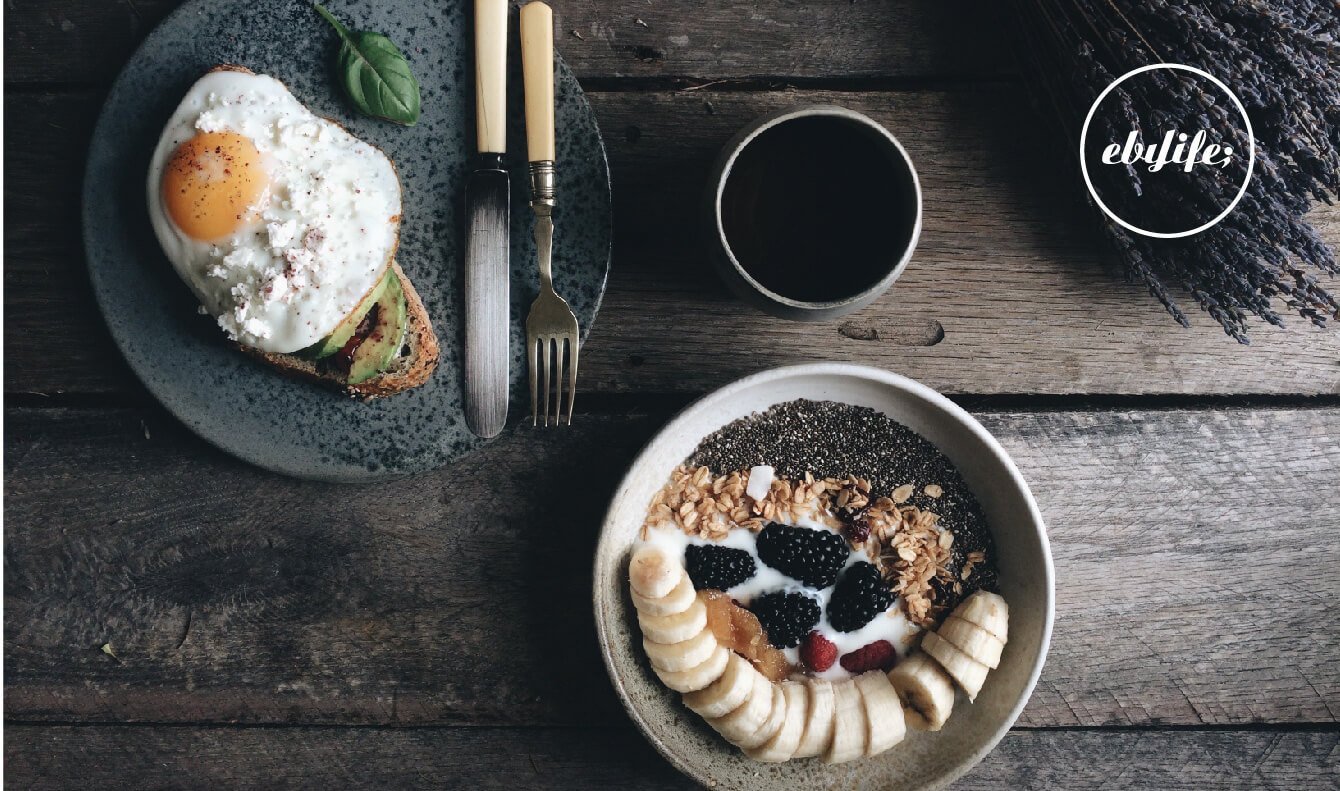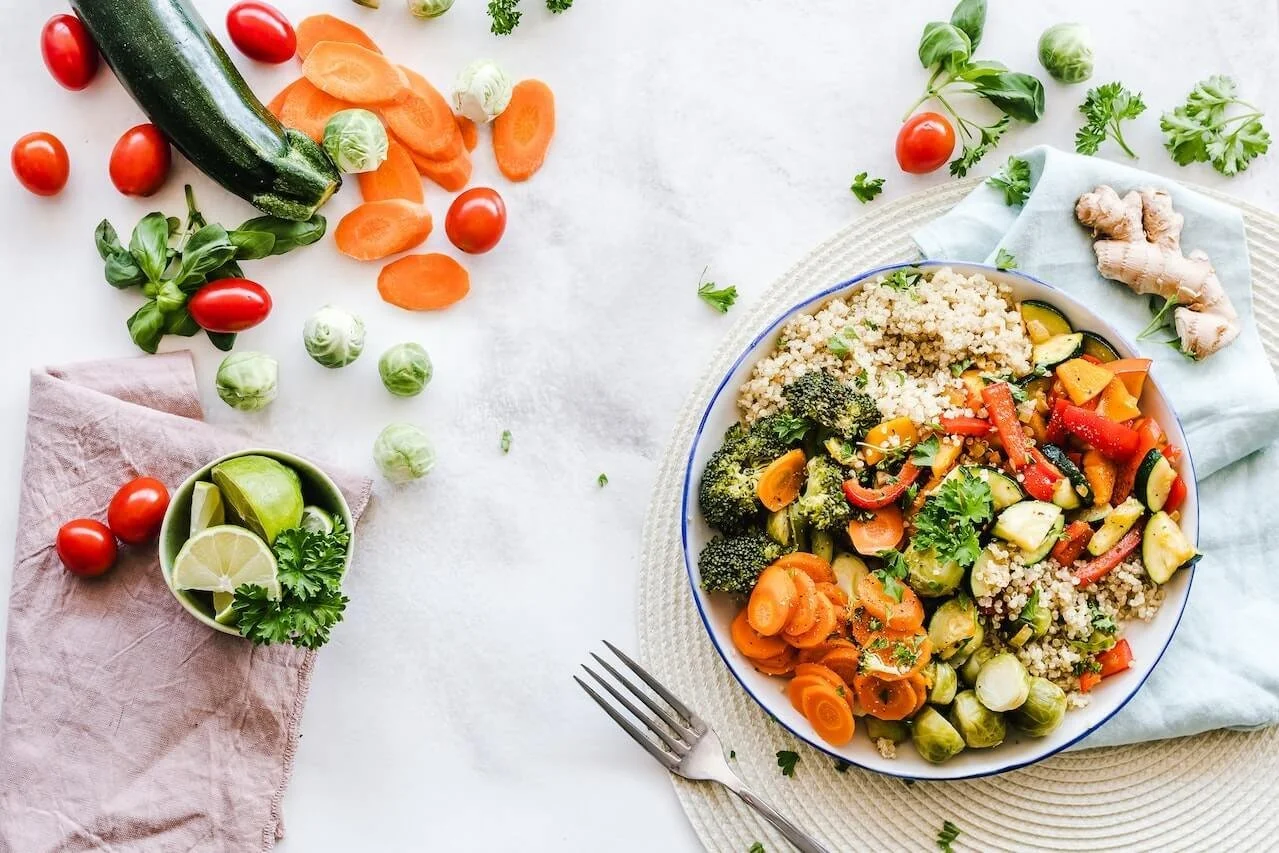Protein For Fitness goals: How Much Do You Need?
Written by Martin Ebner, head Personal trainer and sports nutrition specialist at Ebylife.
Whether you're looking to build muscle, lose weight, burn fat or improve your recovery times, protein consumption is fundamental when it comes to smashing your fitness goals. More on that later. Let's first look at Protein's role in a healthy lifestyle.
Protein's Role In A Healthy life
While protein is recognized primarily for its attributes when it comes to building and repairing muscle, its role as part of a healthy lifestyle is much more significant. Protein is responsible for regulating the body’s fluid balance, hormone secretion, digestion and facilitating muscle contraction. Protein is actually a component of every cell in the human body and without it, we couldn't exist.
Unlike carbs and fat, your body can't store excess protein so when you're running low, it has no supply from which to draw. That's why it's so important to make sure you consume enough on a daily basis.
Symptoms of protein deficiency include poor concentration, lethargy, a slow metabolism, trouble gaining muscle and low immunity.
How much Protein Do You need?
While most nutritional organizations recommend a modest 0.8g of protein per kilo of bodyweight to prevent protein deficiency, studies show that this small amount is not sufficient to safeguard good health, a healthy body composition, optimal performance, muscle growth or even maintenance.
The truth is, exact protein requirements vary from person to person and depend on several factors such as age, activity levels, muscle mass, fitness goals and current health condition.
As I say to all of my personal training clients, what's your goal!? Is it to gain muscle, slim down, or maintain a healthy body weight? Once you know your goal, you can more accurately calculate your protein requirements.
How Much Protein You Need For Weight Loss
Studies show that high protein diets are extremely effective in aiding weight loss. There are a number of reasons for this:
1. Protein has been shown to boost appetite-reducing hormones GLP-1, Cholecystokinin and Peptide YY whilst reducing the hunger hormone, ghrelin. This benefit alone leads to a reduction in calorie intake.
2. Protein has the highest thermic effect (20-30%) when compared to carbohydrates (5-10%) and fats (0-3%). The thermic effect of food (TEF) refers to energy expenditure to process food for use and storage. This means that when you eat 100 calories of protein, your body uses 30 calories digesting, metabolizing, and preparing it for use.
3. Protein is the most satiating of the 3 macronutrients. This makes it much easier to restrict calories when eating a diet high in protein.
4. Eating a high protein diet can help reduce the risk of muscle loss when following a calorie deficit. Ideally, when we lose weight, we want that weight to be in the form of fat, not muscle. A diet rich in protein can help facilitate that the majority of the weight loss is from fat.
When your goal is weight loss, make sure to keep your levels of protein consumption moderate to high.
Aim for 1.2 - 2.2g of protein per kilo of body weight every day.
See our: Weight loss diet
Related articles:
How Much Protein Do You Need For Muscle Gain
Protein is the building block for muscle growth, repair and maintenance, and without adequate high-quality protein to fuel your muscles, they don't stand a fighting chance.
That said, like anything in life, too much of anything is good for nothing and protein is no exception. The exact amount required for optimum muscle growth and repair is highly debated with some bodybuilders and fitness enthusiasts consuming far more than is necessary. While it's always better to play it on the safe side, don't feel that the majority of your calories need to come from protein alone. When it comes to building muscle, a calorie excess is key and carbohydrates and fats should also play a crucial role as part of a healthy and balanced diet.
When your goal is to build muscle, keep your protein intake moderate to high.
Aim for 2- 3g of protein per kilo of body weight per day.
See our: Skinny guy’s Bulk up diet plan
Related articles:
How Much Protein Do You Need For Maintenance
There are 2 types of “maintenance”. Those that exercise regularly as part of a healthy lifestyle and those that don't exercise at all.
If you're the latter, you certainly don't need as much protein as a high-performing CrossFitter.
If like me, you've trained for decades and are as close to your genetic potential as you're likely going to get, keep your protein intake moderate to high. This will ensure that you maintain a healthy body composition whilst continuing to fuel your workouts and recovery.
Aim for 2- 3g of protein per kilo of body weight per day.
If you exercise at a very light intensity or are sedentary, most nutritional organizations suggest a moderate intake of 0.8g of protein per kilo of body weight. My suggestion is to aim slightly higher to prevent a protein deficiency.
Aim for 1 – 1.5g of protein per kilo of body weight every day.
How To Get Enough Protein From Your Diet
The struggle to meet protein requirements can be a real problem for many and if left neglected for too long can lead to a protein deficiency.
Thankfully getting enough protein from your diet isn't as hard as you might think. It's a question of making small but conscious decisions about what you eat and when. With a better understanding of the nutritional content of certain foods and a few tweaks here and there, you can easily bump up your protein intake without too much effort or the need for supplements. Here are some simple tips on how to meet your protein needs every day.
Opt for whole-grain over refined
Not only can whole grains help reduce the risk of cardiovascular disease and type 2 diabetes, their protein and fiber content heavily outweigh their pale nutrient weak refined counterparts.
To get more protein bang for your buck-wheat, incorporate whole grain pasta, bread, rice and flour alternatives into your menu on a daily basis.
How To Eat Enough Protein at breakfast
If you're somebody that spends long hours away from the comfort of your home and kitchen, make sure to kick start your day with a healthy serving of protein at breakfast. Not only will a protein-rich breakfast help kick start your metabolism, it's also very satiating, meaning you're less likely to snack on sugary treats in the lead-up to lunch. Try one of the 3 protein-rich breakfast ideas below:
Breakfast 1
2 poached eggs
1/2 avocado
2 slices of wholegrain toast.
Nutritional content: 425 calories, 19g protein, 43g carbs, 22g fat
Breakfast 2
60g Oats
200ml soy milk (unsweetened)
25g almonds
25g pumpkin seeds
1/2 banana
Nutritional content: 500 calories, 29g protein, 68g carbs, 24g fat
Breakfast smoothie
1 tbsp peanut butter
1 banana
50g Oats
Cocoa and cinnamon
Handful of ice
Nutritional content: 500 calories, 14g protein, 61g carbs, 14g fat
Drink soy milk
Soy milk contains more protein, less sugar, and fat than any of its milky equivalents. Try adding it to your coffee, cereal or just drink it straight!
Note: Some soy milks contain high amounts of sugar so always check the label and opt for unsweetened where possible.
See related article: How to read food nutrition labels
How To Eat Enough Protein at Lunch
Make sure to add at least 1 serving of high-quality protein to your lunch plate. Chicken and turkey breast are both great sources of lean protein and when combined with a selection of fresh vegetables, make for a delicious and highly nutritious lunch option.
Try the high protein, low carb salad recipe below:
200g turkey breast
1 serving of broccoli
1 serving on Rocket
1 tomato
1 serving of red lettuce
1/2 avocado
1 tbsp olive oil
1/2 tbsp balsamic reduction
Salt and pepper
Nutritional content: 537 calories, 54g protein, 22g carbs, 24g fat
Go nuts!
I feel a little hypocritical about encouraging people to eat nuts as a way to consume protein. After all, most nuts are made up primarily of fats. That said, these delicious bite-sized beauties are one of nature's most nutrient-dense foods. Loaded with healthy fats, vitamins, minerals, and up to 25g of protein per 100g serving. You'd be nuts not to eat some! Excuse the pun.
Next time hunger strikes in-between meals, instead of grabbing your regular bag of chips, reach for a 50g serving of nuts instead. The nutritional benefits alone make it the smart choice.
Peanuts, almonds, and pistachio are the most protein-dense nuts.
Nutritional content per 50g serving of peanuts: 283 calories, 13g protein, 8g carbs, 25g fat
Low-fat greek or natural yogurt
Instead of chowing down on chocolate for your mid-afternoon snack, serve yourself a healthy dollop or 2 of low-fat Greek or natural yogurt. It's packed with muscle-building protein, is rich in calcium and tastes delicious.
For an added protein boost, try topping your yogurt with Pumpkin and Squash Seeds.
Nutritional content per 200g serving of Low-fat Greek yogurt: 160 calories, 12g protein, 16g carbs, 5g fat
Get at least 5 servings of vegetables per day
Vegetables, although not oozing protein, are very good for you so go eat some!
The 5 Highest protein vegetables (Per 100 grams)
1: Edamame (cooked soybeans) - 11g
2: Green peas - 5.4g
3: Kale - 4.3g
4: Spinach - 3g
5: Asparagus and broccoli - 2.5g
See related article: The Ripped Vegan: Can you build muscle on a vegan diet
How To Eat Enough Protein at dinner
If you work long and demanding hours with little time to eat during the day, dinner may be your best bet for filling up on protein. I know it's the end of the day, you're tired and as tempted as you may be to opt for an easy high-carb meal, try to avoid it! Eating a high-protein meal in the evening will help your body recover after a tough day and keep your metabolism revved up while you sleep.
Top 10 high protein foods (per 100 grams)
Beef - 26g
Pork - 27g
Poultry - 27g
Salmon - 24g
Venison- 23g
Wholegrain rice & pasta - 14g
Eggs (around 2 eggs) - 13g
Cottage cheese - 12g
Tofu - 10g
Lentils - 9g
A final word
Protein is unquestionably important when it comes to better health, a healthy body composition and your ability to build and support muscle growth and maintenance. While exact protein requirements vary from person to person and are often dependent on a variety of lifestyle factors and fitness goals, in order to prevent any form of protein deficiency, it’s important to make sure you get enough. If you are unable to meet your daily protein requirements from diet alone, you may want to consider taking a protein supplement as a safeguard. They are an easy and convenient solution, especially if you are short on time, pre and post-workout or when you have limited access to lean protein sources at home. If ever in doubt about how much protein you need for your specific fitness goals and lifestyle or whether or not to include a protein supplement as part of your nutritional plan, always consult with your nearest registered dietician or health care professional.


